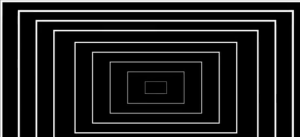Blurred vision is a condition that results in diminished or absent sharpness in the normal vision, which prevents affected individuals from observing the minute details of all objects. Identification of all things and objects may become difficult due to blurred vision as it causes cloudy, dull and hazy sensations in vision.
People of any age group can get this frustrating condition, either in one eye or in both the eyes.
Symptoms of blurred vision
Blurred vision may be followed by the other symptoms, depending on a preexisting condition or disorder.
One may experience certain issues with the eye. Additionally, one may also experience a variety of other symptoms that affected other body tissues and systems such as the immune system or the neuromuscular system.
For example, refractive errors of the eye such as myopia that accompanies blurred vision, may sometimes elicit symptoms of minor headaches; and blurred vision due to an auto immune disorder may elicit additional symptoms such as pain and stiffness in the joints.
Blurred vision can lead to a number of vision related difficulties. Some of the symptoms of blurred vision that affects the eyes are discussed below:
- Increased dryness of the eyes
- Pain in the eyes
- Bleeding from the eyes
- Excess sensitivity of the eyes to light
- Discharge coming out from the eyes
- Increased tear generation of the eyes
- Loss or lack of central or side/peripheral vision
- Poor nocturnal vision
- Sore or increasingly reddened eyes
- Presence of floating objects and spots in front of the eyes or vision
- Poor near or close-up vision
- Increased itchiness of the eyes
Some other signs that are related to other body systems may also occur along with blurred vision. They are as follows:
- Pain in the abdomen
- Depression
- Fatigue
- Butterfly shaped rash that covers the cheeks and the bridge of nose
- Droopy eyelids
- Fever
- Weakness or tingling of extremities, loss of memory and increased difficulties in motor activities such as movement of jaw to speak, walking, etc.
- Pain of the joints
- High blood pressure
- Headache
- Weight loss without any reason
- Difficulties in concentration

Causes of blurred vision
Some of the most common causes for blurred vision are:
- Myopia or short sightedness: It is a condition wherein the distant vision tends to be blurry, while one can clearly see the nearby objects. Irregularities in the focus of visual light in front of the retina lead to the condition. Individuals younger than twenty years of age suffer from this condition. The condition can be diagnosed in children when they complain of inability to clearly see the chalkboard in the classroom. Myopia can be caused due to hereditary reasons.
- Hypermetropia or far sightedness: In this condition, the affected individuals suffer from irregularities in the focus of visual light that is in front of the retina and leads to clear visibility of the distant objects, while things that are closer to the eye are blurred. Normally, the disorder tends to run in families, but the signs of the condition may develop a lot later in life.
- Presbyopia: Generally this vision problem is seen after the age of 40. As individuals age, the power of the eyes to focus become weak and there is loss in the flexibility of the eye lenses. This results in blurred vision which leads to difficulties while reading books and news papers
- Astigmatism: Due to abnormal shape of cornea the reflected light is not properly focused on retina which leads to blurred vision for nearby as well as distant objects. Initially blurred vision occurs for an object placed at a distance. But later when the disorder becomes severe, a constant blurred vision occurs both for near and distant objects.
- Macular degeneration: When the cells of macula or the central part of retina loses its normal function, then it causes loss of central vision. The degeneration occurs with aging and generally affects people above 60 years of age. Recognition of faces and activities such as reading become difficult due to the resultant blurred vision.
Other causes:
- Problems like glaucoma or dry eyes may cause blurred vision
- Cataracts cause increased cloudiness of the eyes
- Some medicines like cortisone, certain antidepressants, oral contraceptives or cardiac medications can cause blurred vision as a side effect.
- Sudden blurred vision may occur in those who suffer from migraine.
- Patients who suffer from diabetic retinopathy may have swelling and bleeding of the retina which results in blurred vision
Treatment for blurred vision
- If blurred vision is due to the undamaging causes such as hypermetropia or myopia, then corrective contact lenses or glasses may be used for correction of sight
- Cataracts can be corrected by surgery.
- If the blurred vision is due to dry eyes, it is corrected by lubricating the eyes by eye drops as prescribed by the doctor.
- In cases of blurred vision due to medicinal side effects, the medicine responsible for blurred vision should be stopped forthwith.
- If the blurred vision was caused by the condition of severe diabetes, then sugar control measures should be taken for patients of diabetes for correcting the blurred vision.
Doctor’s advice should be strictly followed for correcting the blurred vision cases and one should not try over the counter eye drops, as blurred vision can be a serious condition.
Wow that was strange. I just wrote an really long comment but after Iclicked submit my comment didn’t appear. Grrrr…well I’m not writing all that over again. Anyway,just wanted to say superb blog!